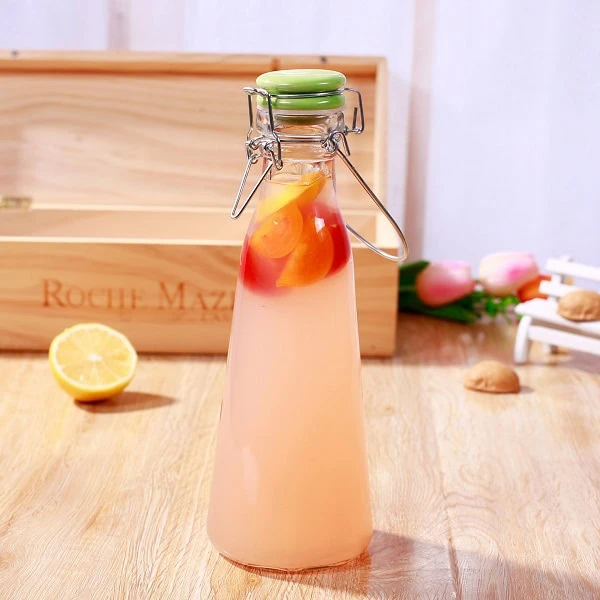Yes, glass milk bottles can be safely and effectively sterilized. In fact, glass is one of the best materials for sterilization due to its heat tolerance and non-porous nature. Here’s a closer look at why and how glass milk bottles can be sterilized safely:
High Heat Tolerance
Glass can withstand high temperatures, making it safe for sterilization methods that involve heat. Unlike some plastics, which can warp or release chemicals under heat, glass remains stable and does not degrade. This makes it perfect for sterilization in both household and industrial settings.
Methods of Sterilizing Glass Bottles
There are several common ways to sterilize glass milk bottles safely:
- Boiling: Submerging glass bottles in boiling water for 10-15 minutes effectively kills bacteria and other contaminants.
- Dishwasher Sterilization: Most dishwashers have a high-temperature setting that can safely sterilize glass bottles.
- Autoclaving: In industrial settings, glass bottles are often sterilized in an autoclave, a high-temperature, high-pressure device commonly used in medical and food industries. This process ensures thorough sterilization without compromising the glass.
- Chemical Sterilization: Food-safe sterilizing solutions can also be used. These solutions are rinsed off after application, leaving the bottles clean and safe for use.

Non-Porous Surface Prevents Bacterial Absorption
Glass is non-porous, meaning it doesn’t absorb bacteria, odors, or flavors. This quality makes sterilization more effective, as bacteria have no place to “hide” within the material. This non-porous nature also means that once glass is sterilized, it stays sterile until it comes into contact with contaminants.
Ideal for Repeated Sterilization Cycles
Because glass doesn’t degrade easily, it can withstand repeated sterilization cycles without any loss in quality. This is especially beneficial in bottle-return systems, where bottles are cleaned and reused many times. Even with multiple cycles, glass remains safe and effective for continued use.
Safety Precautions for Sterilizing Glass
While glass can be safely sterilized, it’s important to handle it with care to avoid cracks or chips, especially if moving quickly between very hot and cold temperatures. Allowing bottles to cool naturally after high-heat sterilization can prevent thermal shock and prolong their lifespan.
Conclusion
Glass milk bottles are highly suitable for safe sterilization, making them an excellent choice for multiple uses. With their durability, non-porous nature, and tolerance to high temperatures, glass bottles provide a hygienic and sustainable option for milk storage, staying safe for repeated uses over time.

